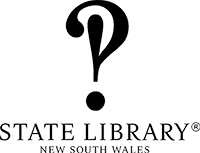FL14369594
Facsimile
Transcription
James Hassall took his prison chaplaincy duties very seriously and was a constant visitor to the gaol. As chaplain he received a salary of £100 per annum. In 1862 Berrima Gaol was converted into a seperate treatment and solitary-system establishment which meant the people on sentences of five or more years had to spend the first year in solitary confinement. He believed that the prison sentence should be used to reform prisoners and to help with that he spent time with men in solitary confinement, tought some of the prisoners to read and supplied books including Bibles printed in large type so that they could be read in the dim light of the gaol. He often brought about pardons for the wrongly convicted and in having solitary confinement terms reduced. He wrote long, carefully thought out ideas for the proper management of prisoners where they would not be kept idle and would have the opportunity to reform with the encouragement of moral and religious teachings. He feared that gaols could become the "hot-beds and nurseries of crime" and that many would learn how to become effective bushrangers by listening to the words of older criminals. His care and concern for prisoners was much appreciated by them and for many years after he received letters of apprectiation from former prisoners and their families. In fact in 1878, after he had moved to Queensland, he met a former inmate of Berrime Gaol now a prisoner in Brisbane Gaol, who wrote a later to thank him for the visit and to describe to him the circumstances of his being in prison - evidence that Hassall not only kept up his Berrima connections but also continued to show an interest in prisoners and their treatment. Other letters to him also point to this concern.
Although Hassall was very active in Berrima and worked very hard at his extensive duties he was constantly writing about his poor income and the reluctance of the parishioners to actually provide the financial support they had promised although in May 1855 a collection was taken up to increase his previous year's salary and he also hoped to receive a government subsidy. In spite of these complaints about money he sold by auction in June 1856 portions of Russell's Farm (one of the many farms bequeathed to his descendents by Rowland Hassall) for £652 and was able to pay £508 to the Crown Lands office in December 1857 for 465 acres 2 roods of land at Mandemar. Lack of support from his parishioners caused him to write to the Bishop complaining that his income consisted only of £200 per annum, and with money from fees and voluntary sources his income was increased to about £300 altogether - less than £400 per annum the church considered adequate. He wrote that he could certainly live without servants and without horses but then he could not do his duty conscientiously. He gave an outline of the work he had done:
"There are now six thousand people in this Berrima District and I have the far greater proportion of them under my charge. My work is really heavy and but unsatisfactorily fulfilled. To show you, my Lord, for I think you should know. I have had 20 Baptisms already this year. My past week's work is not unsual I had to visit a dying man (sent for expressly) 20 miles. Sunday duty 12 miles, an express to Baptise a sick child 12 miles, another express - Ditto - 25 miles. two days collecting with Mr Jordan rising all day and one day a funeral. Thus not less than 120 miles unavoidable duty ---the past week. My dutes have always been of this character..."
He continued
Notes and Questions
Nobody has written a note for this page yet
Please sign in to write a note for this page


